Ever since I discovered the magic of secondhand shopping as a teenager, my closet has been dominated by thrift store labels: Jones New York, Liz Claiborne, Talbots, and other unrecognizable, probably now-defunct brands from the 80’s and 90’s. However, in the past few years—with increased purchasing power and knowledge about clothing production—I’ve finally been able to start collecting pieces from the small, independent brands I’d long admired, many with a “slow fashion” ethos.
I’ve been thinking a lot about these brands since reading Angharad Jones’ newsletter on the potential impact on these small businesses amid the tidal wave of virtual No Buy pledges. While I believe this message was delivered with good intention and fairly presents the predicament faced by many niche creators, it made me feel a bit uneasy.
As consumers, I absolutely believe we can play a role in demanding industry reform through “positive action”—by supporting small, local producers over fast fashion conglomerates or luxury giants. But I’m not so sure about positioning this sentiment as a counterargument to the “buy less” movement. I don’t think anyone should feel guilty about embracing a No Buy challenge, shopping purely secondhand, or scaling back clothing consumption in general because it might hurt struggling brands. Ultimately, I don’t believe it is the responsibility of consumers to keep any fashion operation in business, however innovative or ethical it may be.
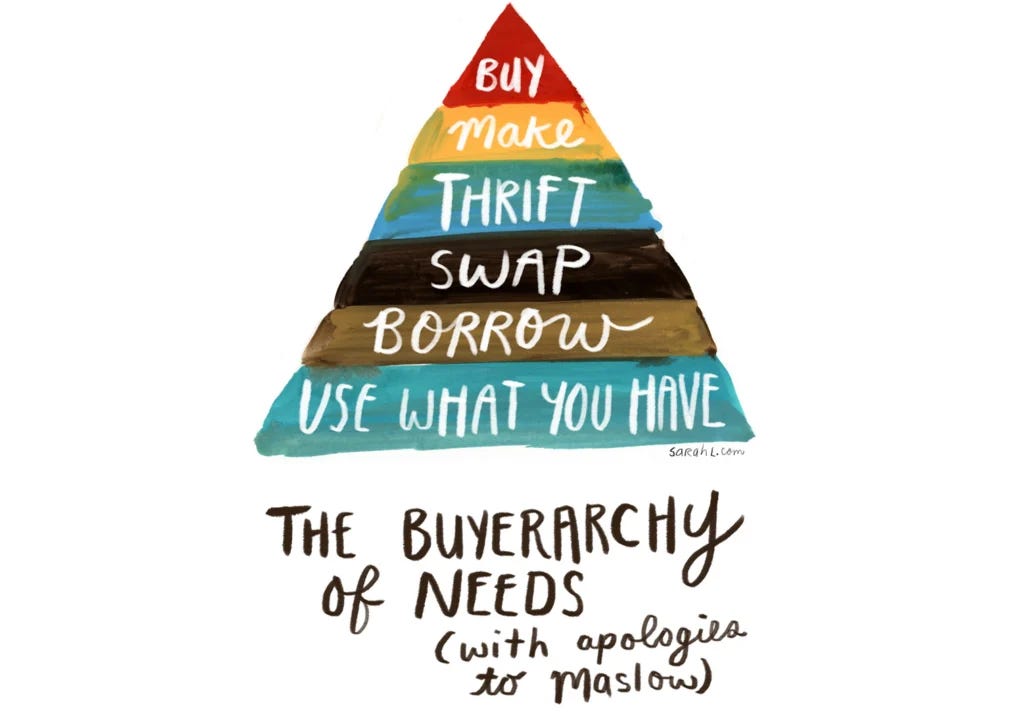
It reminds me of the two beloved brunch spots in my neighbourhood that recently went under—their shuttered windows and departing words taped to the door bring me sadness whenever I stroll by. I very badly want my favourite independent restaurants to be successful and make an effort to frequent these local joints over the chains. However, I’m not going to feel bad about making breakfast at home 90% of the time because it’s the more economical, healthy thing to do.
Each of us has the agency to vote with our dollars, but we must understand that our individual impact is limited when the overarching system is so rigged in favour of scale and cheapness. Really, the onus should be on policymakers to enable local, sustainability-minded brands to better compete (e.g., through incentives and tax breaks). Seeing as there’s little chance of that happening in most places, it rests on the brands themselves to develop innovative business models that are responsive and can cater to a low-consumption society—a tall order, indeed.
There are so many small fashion brands whose work aligns with my style philosophy and sensibilities, more than I could ever afford to patron. Yet I will continue to wish list their pieces, make rare purchases from them in line with my wardrobe needs, and promote them with my limited (and unpaid) reach—because I truly do value their existence within the fashion ecosystem.
With that, here’s a little show-and-tell of the cherished small business made pieces that have found their way into my closet.
Nin Studio (Mexico)
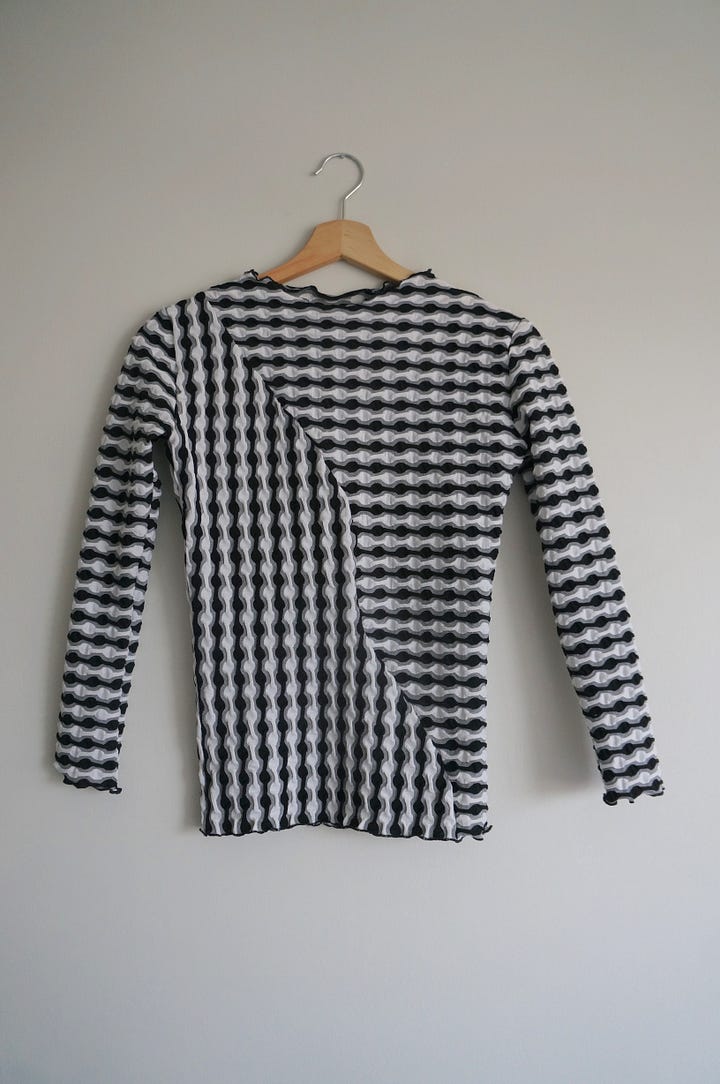
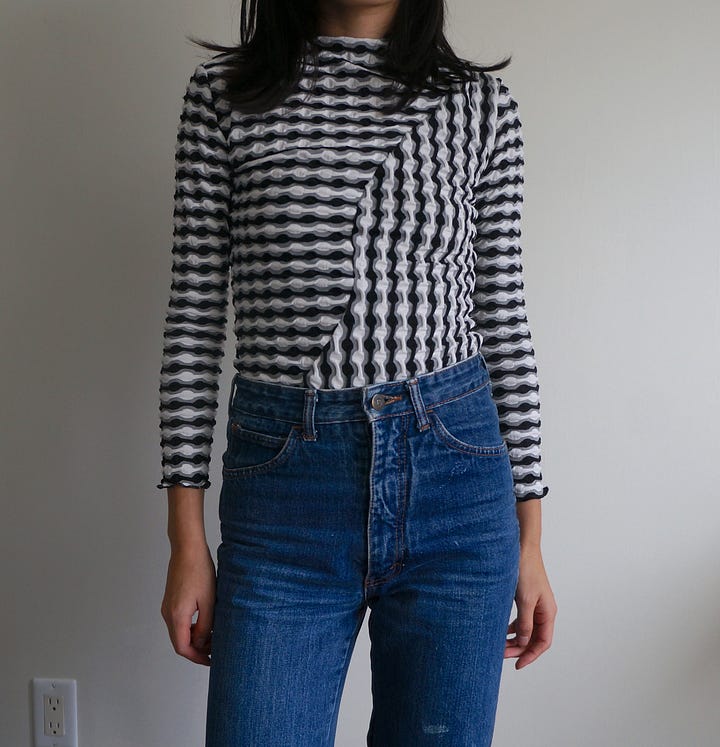
Based in Mexico City, Nin Studio makes some of the dreamiest, most whimsical garments I could actually picture myself wearing: shimmering pleats, ethereal silhouettes, swirling patterns that channel the cosmos. I purchased this top in 2022 after much consideration and absolutely fell in love with the playful black and white pattern; it became the basis of my entire style personality that winter (see a rolodex of outfits styled here). Unfortunately it is tight and doesn’t fit me comfortably at the moment. I yearn to find this top secondhand in a larger size! Lesson learned: never invest in special pieces that only fit me at my smallest.
Harly Jae (Canada)

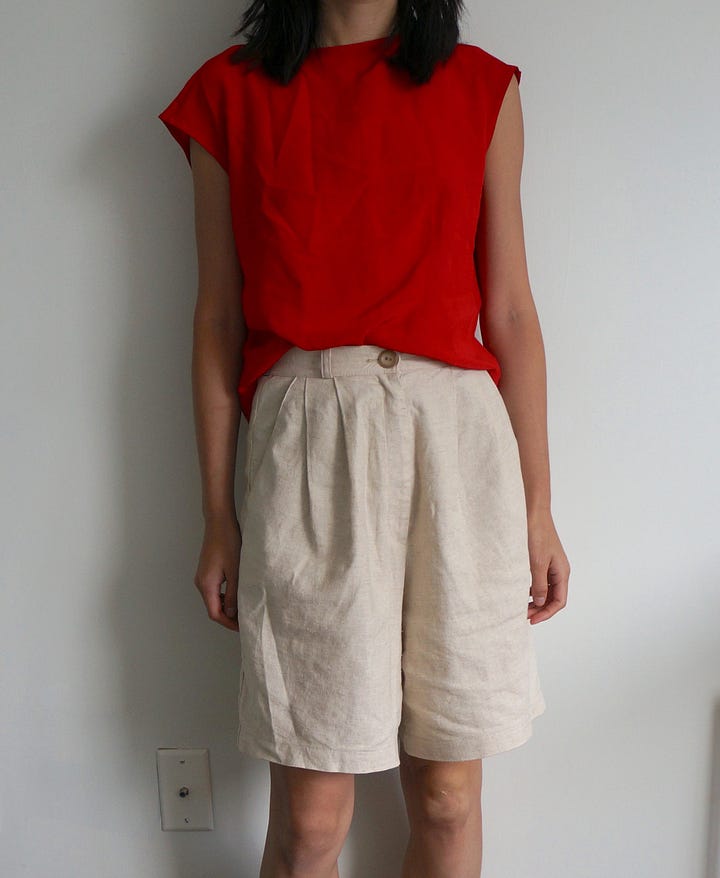
Another beautiful, purchased-from-new piece that sadly no longer fits. Harly Jae is a Canadian slow fashion house that produces its small-batch creations in Vancouver. Mindful of environmental impact, their clothes are designed for longevity and made out of exquisite all-natural materials. Their styles tend to steer minimalistic and romantic—it’s not all to my taste, but these tailored linen shorts were a beloved staple of my summer wardrobe. Had I purchased them in a more relaxed size, I could see these lasting for ages in my closet, getting softer with every wash and wear.
Micaela Greg (USA)
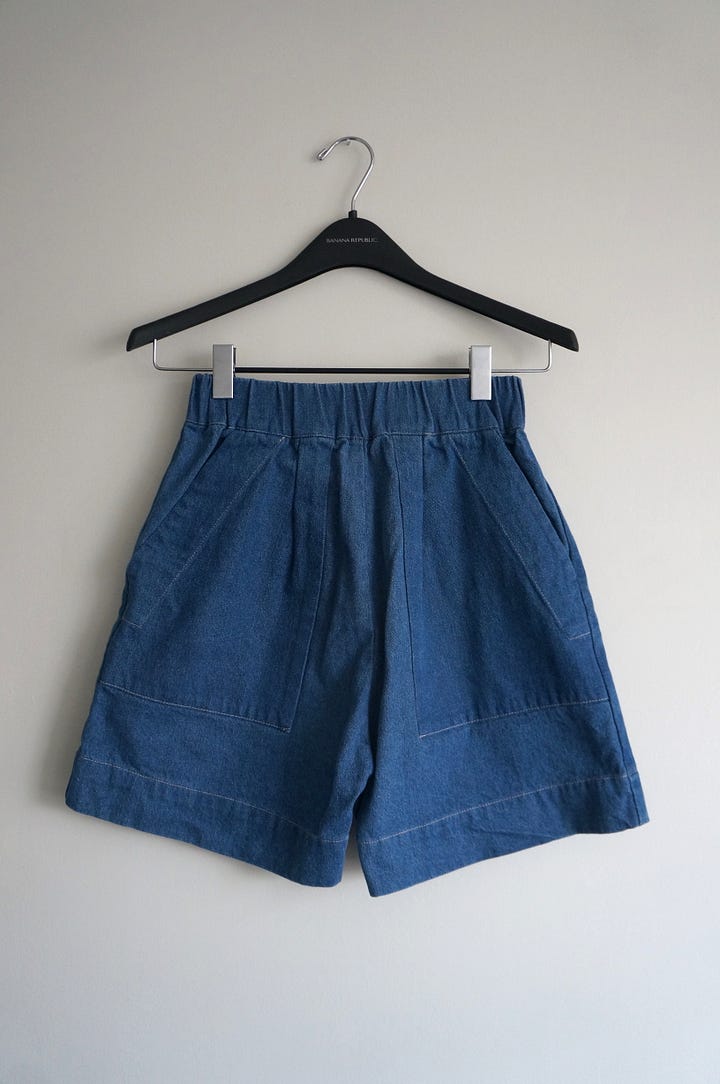
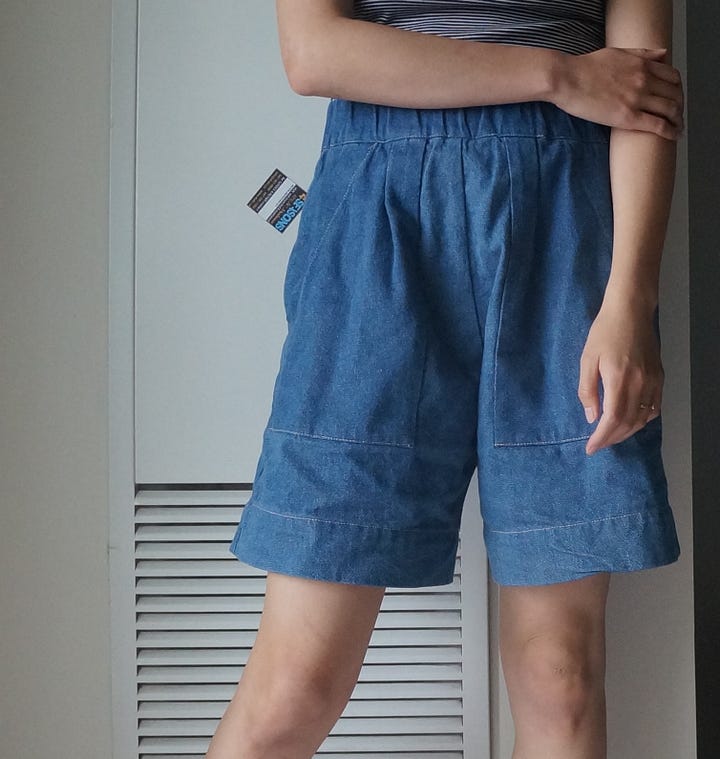
A more recent addition to my closet, these Micaela Greg shorts have been a true workhorse—one of my most-worn pieces last year. Micaela Greg is an American brand that serves deliciously textured knitwear and comfy, voluminous bottoms among their collection. These pieces are expensive, but their attention to design and commitment to quality is evident in everything they make. Fortunately, I was able to find these long denim shorts on Poshmark for a fraction of their original price.
Elizabeth Suzann (USA)

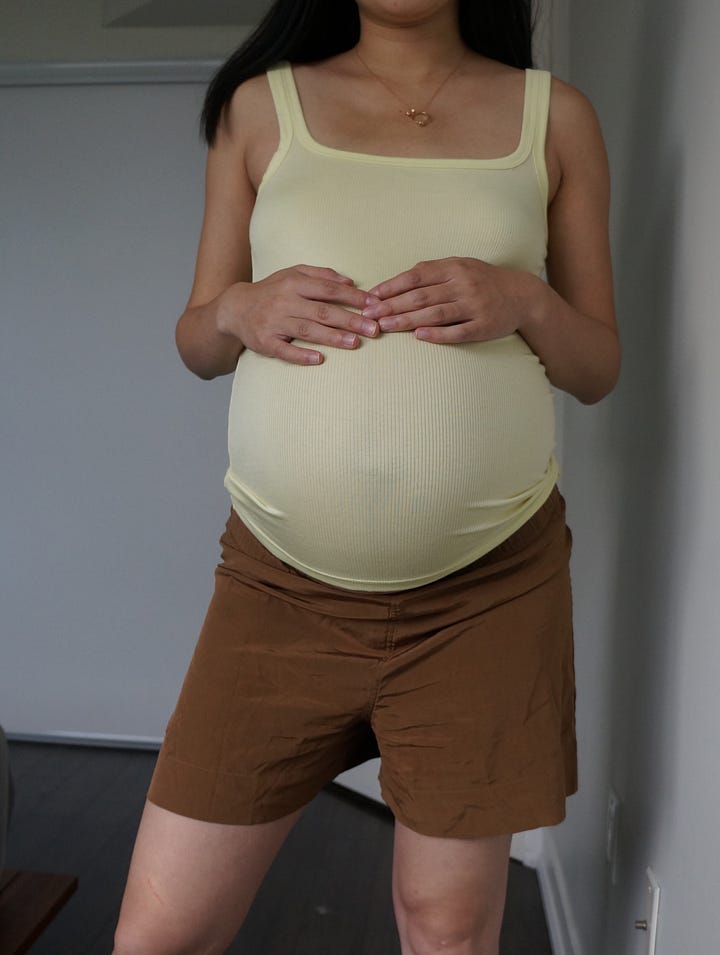
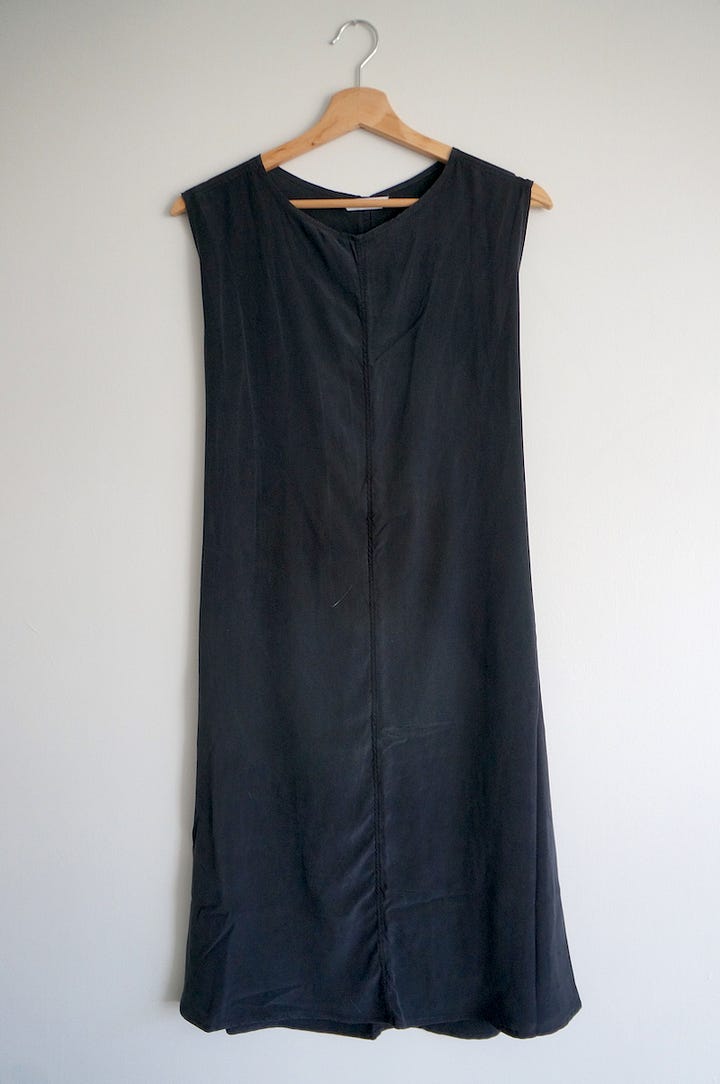

Elizabeth Suzann is a Nashville-based slow fashion brand whose well-crafted, size-inclusive pieces have generated a cult following. I own a pair of bronze shorts and a black dress from the brand, bought during their COVID closing sale on massive discount—though I’m glad they appear to be back in business. These washed silk pieces are lightweight, yet sturdy; luxurious; yet practical for everyday. I wore the shorts throughout my pregnancy and the little black dress is the only one I see myself owning, suitable for nearly any occasion.
Ten Tomorrow (USA)
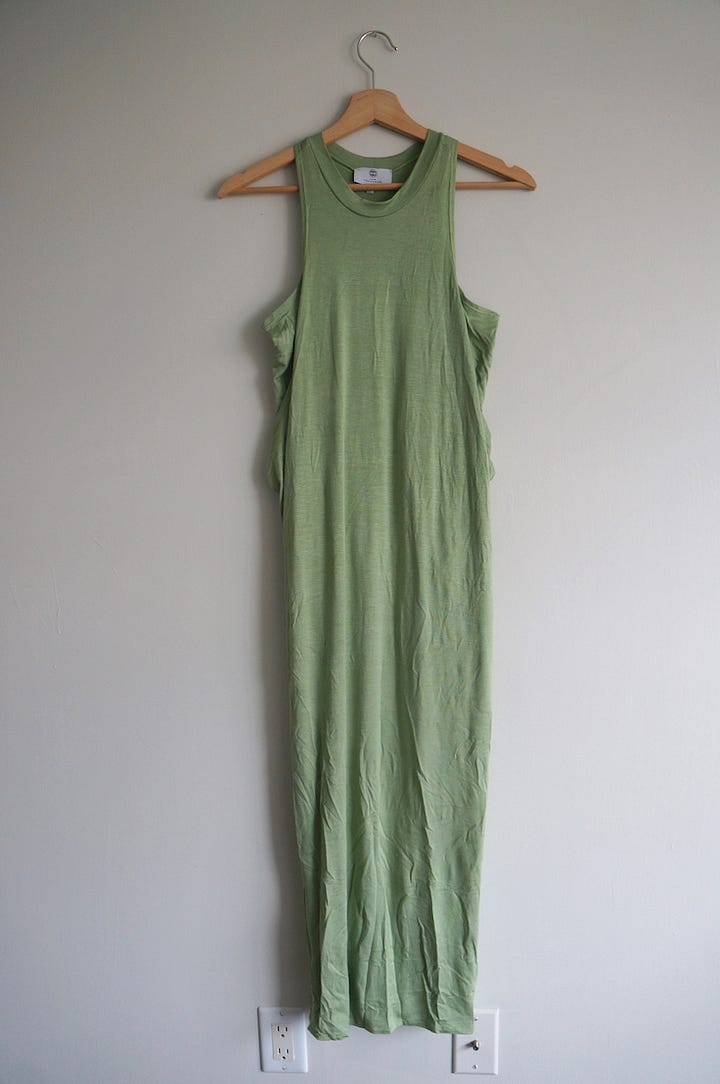
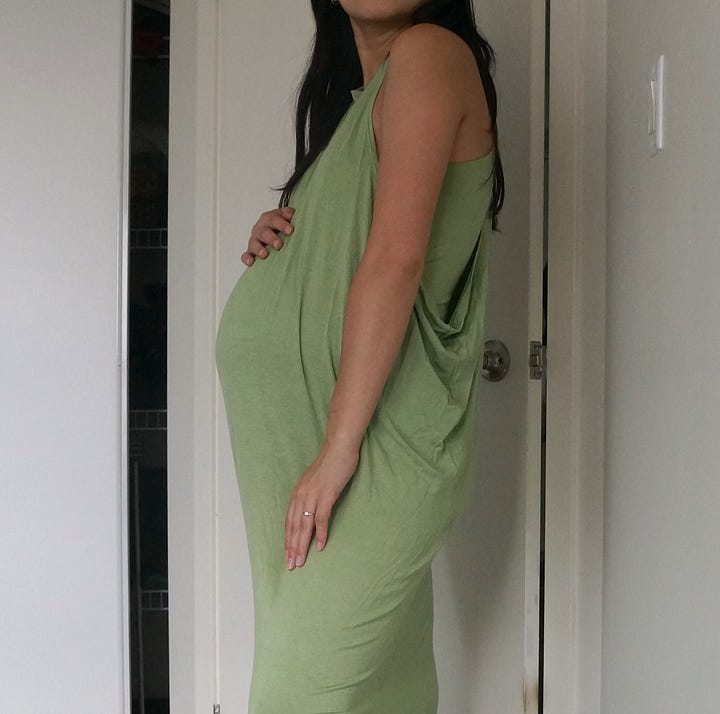
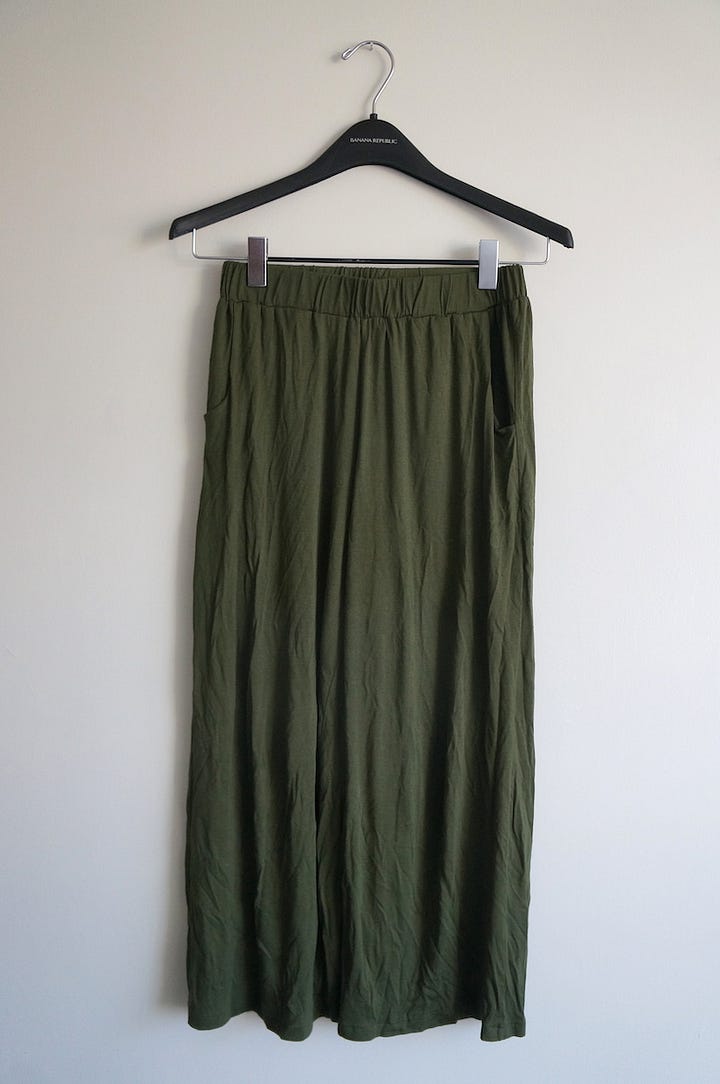
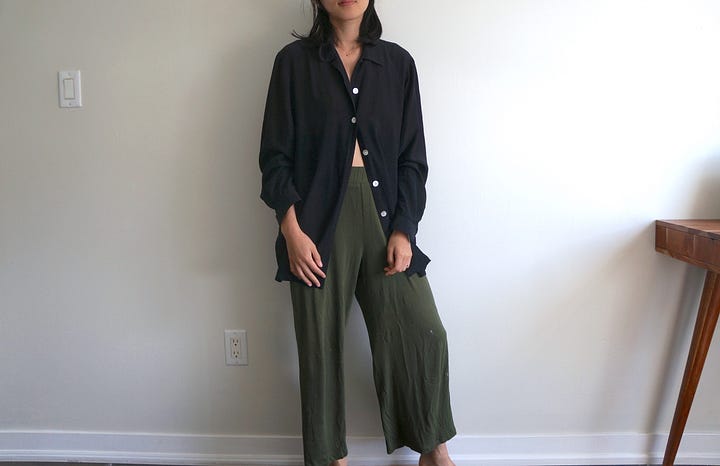
Ten Tomorrow is a made-in-Hawaii brand that I serendipitously discovered on vacation in 2022 after packing too few clothes. I was so charmed by their Honolulu studio, where they produce and sell their collection, in addition to offering custom design services. I wasn’t sure if their beachy styles would work for my wardrobe once I departed the island, but I’ve gotten a decent amount of wear from the pale green dress and olive pants over the years, both cut in buttery soft rayon. They bring back memories of geckos darting between slick rocks and lush, mountaintop views—the best kind of souvenirs.
Cordera (Spain)
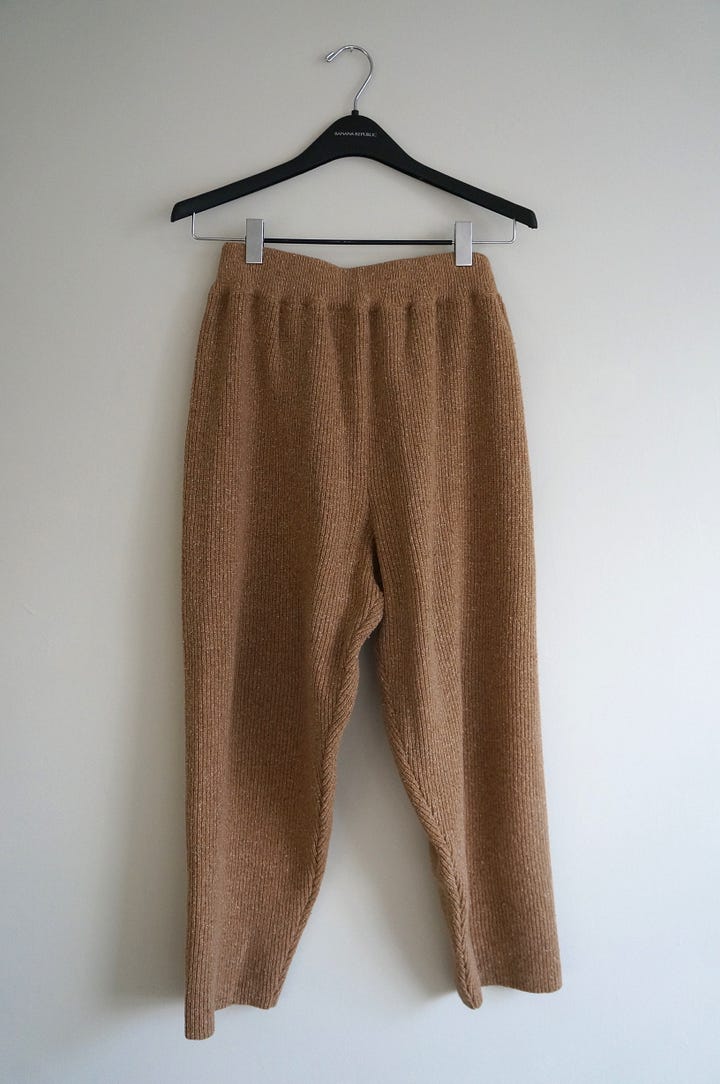
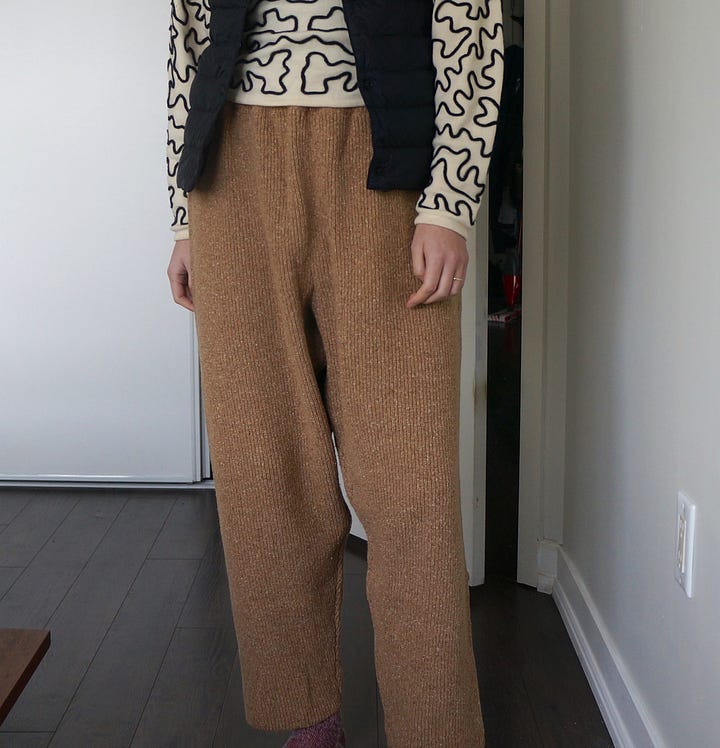
A brand that probably needs no introduction here, I picked up these wool ribbed joggers from Cordera early into my pregnancy in 2023. Purchased on heavy markdown via SSENSE, these one-size-fits-all pants were a maternity wardrobe godsend as my waistline expanded, and came in clutch during the initial postpartum months, too. Due to the lounge-y style, I typically just wear them around the house these days. Nevertheless, I remain a huge fan of Cordera’s knits and size-flexible trouser designs.
Eve Gravel (Canada)
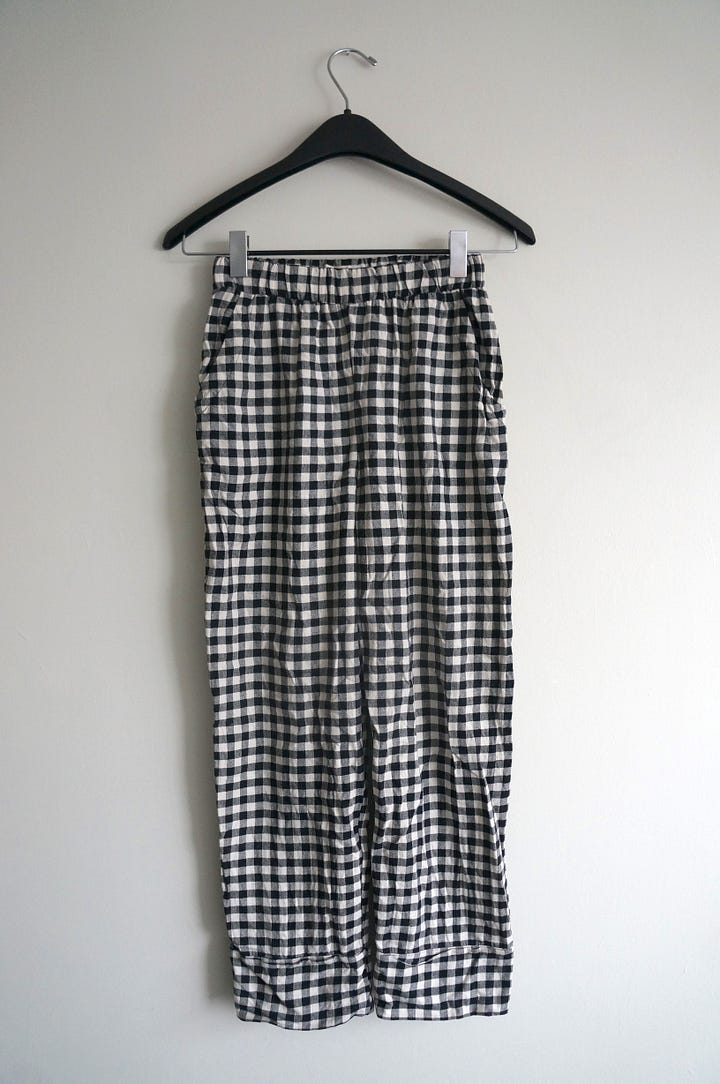

These gingham soft pants from Eve Gravel were a lucky thrift store find; they come with a $200 price tag, but I snagged them for just $9. They feel like pyjamas and kind of look like them, too—but in a creative, upscale way. Another maternity and postpartum wardrobe win. I love the brand’s fun, patterned-filled collections, which are designed and made locally in Montreal. They also produce a small line of home textiles, created from excess fabric and offcuts, a genius way to reduce waste while generating revenue.
Naked & Famous (Canada)
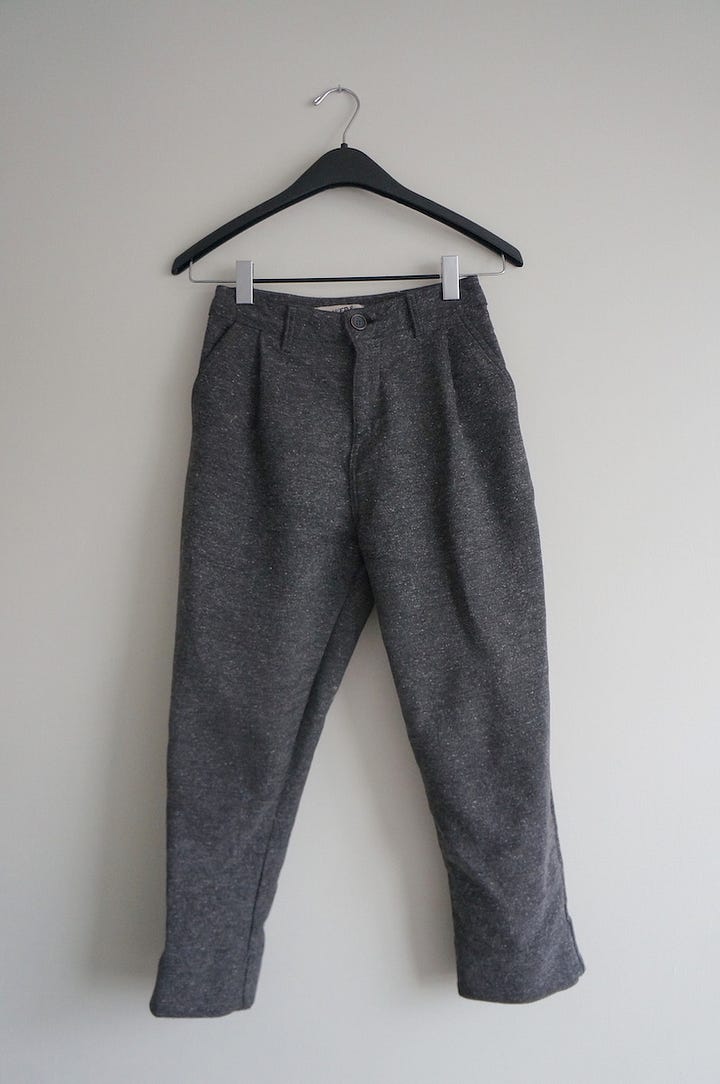
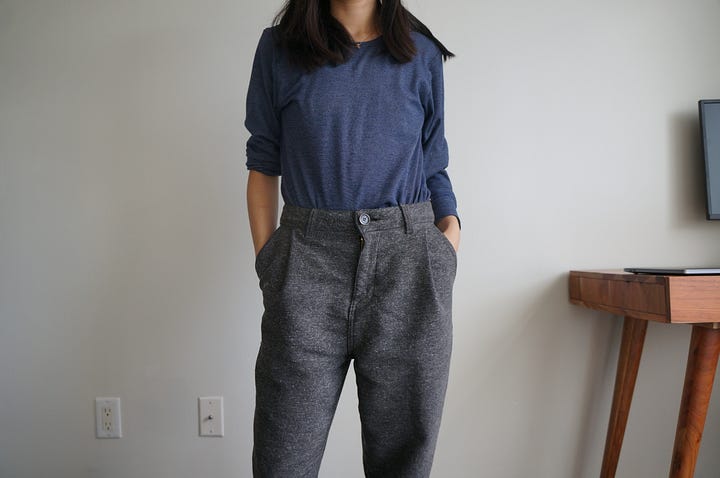
Readers who have been following along since my Wordpress days will be very familiar with these Naked and Famous trousers I’ve owned since 2020. I seriously love these neppy twill pants—as evidenced by the 170+ wears they’ve racked up. They are the perfect dress-up-or-down trousers that I’ve worn to work and on hikes in equal measure. Naked and Famous is most, well, famous for their selvedge denim, all cut and sewn in Canada. There’s a tongue-in-cheekness behind the brand, from their pop art logo to some of their more unique offerings, like tree scented scratch-n-sniff jeans. All fun aside, they make wonderful pieces from carefully sourced materials that you’ll want to wear everyday.
Okayok (Canada)
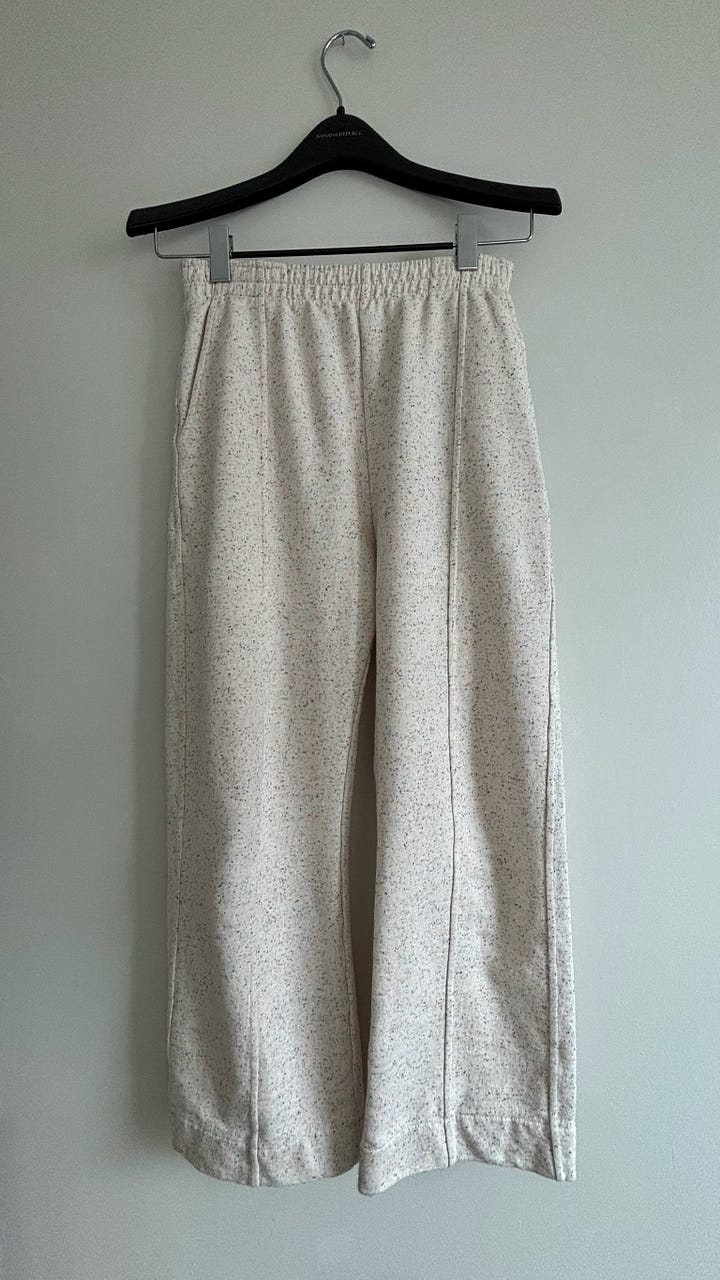
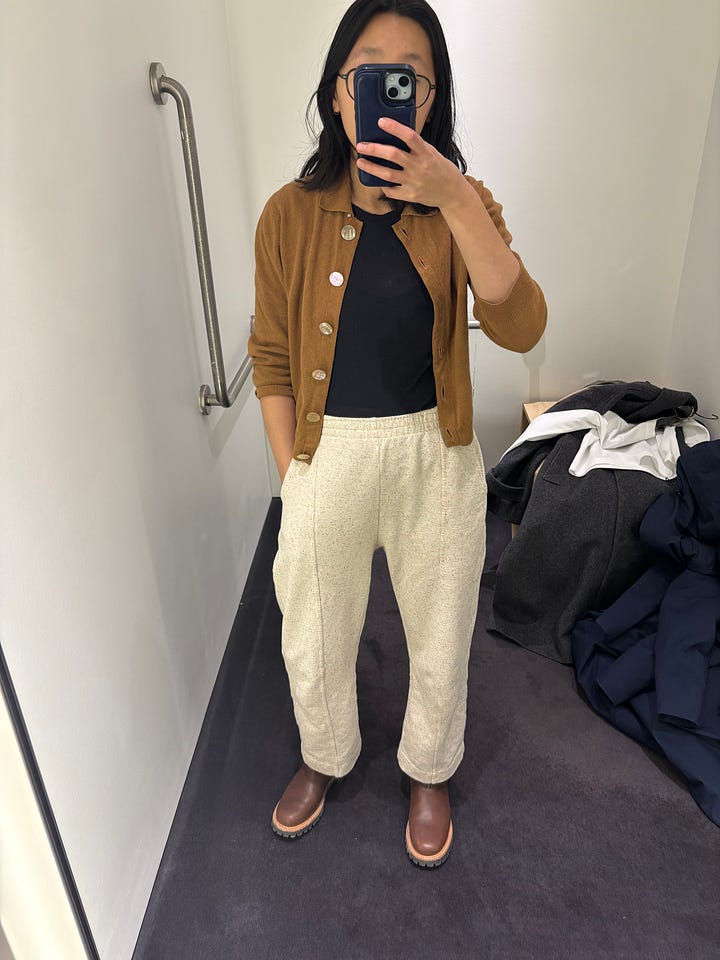
The newest addition to my wardrobe and first purchase of 2025 are these speckled sweatpants from Okayok. Their workshop is located literal steps from my home—it doesn’t get more local than that! I decided to drop by on a bitter winter day to pick up some socks that I wanted. I didn’t plan on getting these curvy seamed pants, a sample piece, but they called my name from the sale rack. Since bringing them home, they’ve barely left my body (and truthfully I’ve barely left home with the deep freeze we’re in). Okayok reminds me of a Canadian Le Bon Shoppe: great socks, cozy loungewear pieces—albeit tatted up in bright, funky graphics. Their pieces range from subdued, yet playful (like these pants) to full-on rainbow and confetti. There’s something for everyone.
Minnow Bathers (Canada)
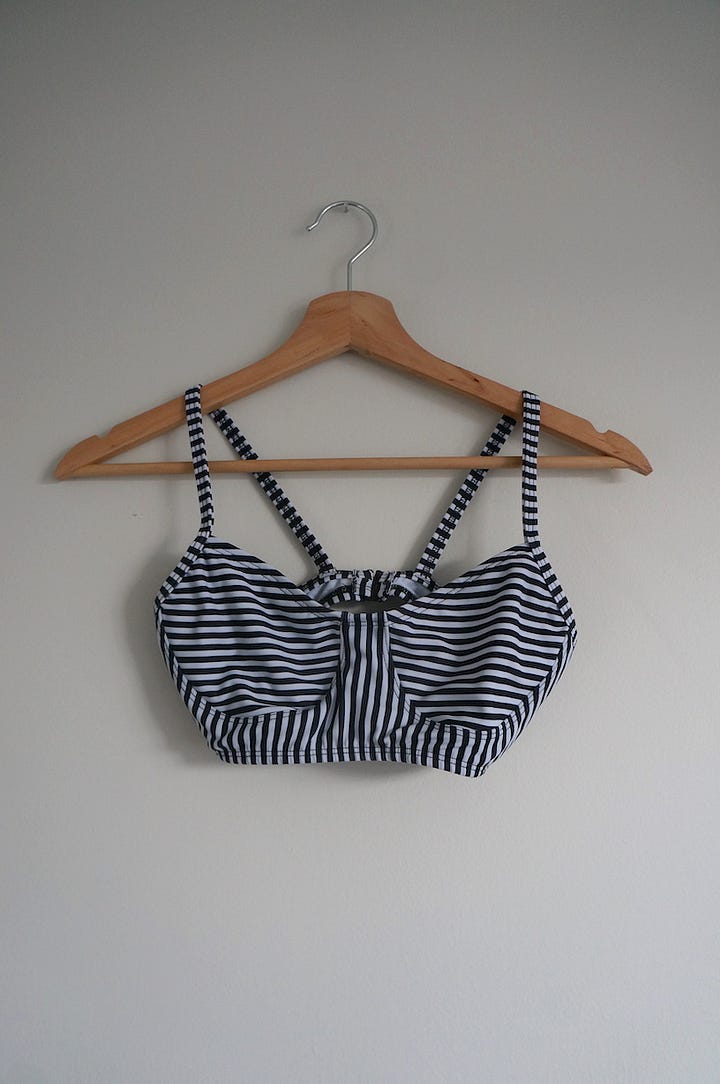
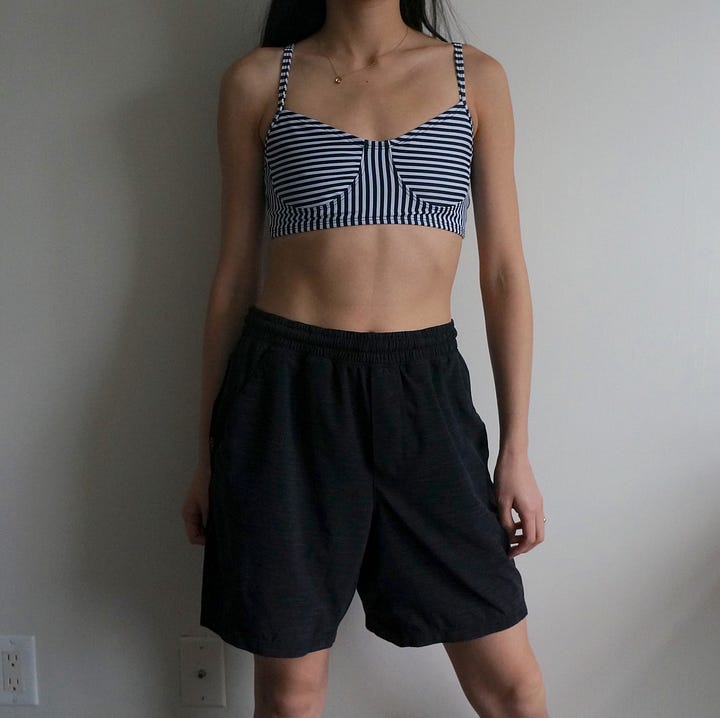
Minnow Bathers is a local swimwear brand that fabricates its limited collections in Toronto. They make beautifully-cut bathers in eye-catching colours and prints, developed using minimal-waste pattern-making and fabric design techniques. Because I’m peculiar, I prefer to wear unmatching swim separates. I searched far and wide to find the perfect pairing for my black bikini bottoms—this stripey number is indubitably it.
Canada West (Canada)
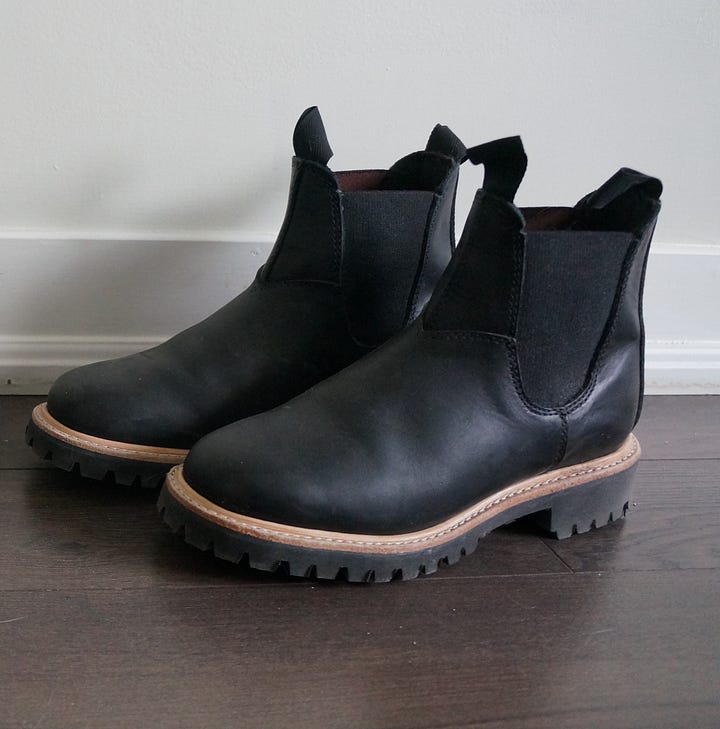
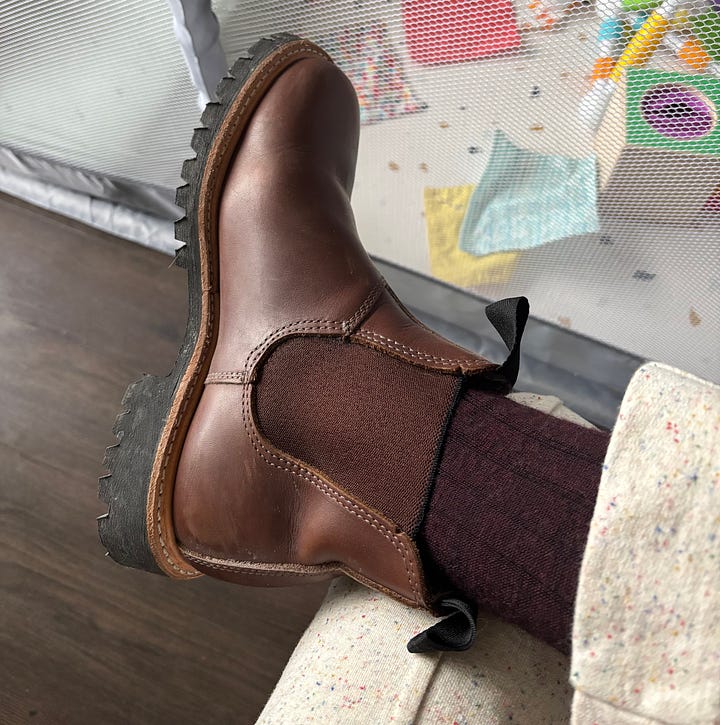
I love these lug sole boots so much that I bought them twice: in black and brown. Canada West is a Winnipeg-based company producing a small range of "buy-it-for-life” quality leather shoes for men and women. They make cowboy boots, biker boots, and CSA-certified work boots—but I’ll stick with these classic Chelsea boots with a touch of western flair. Sleeker (and higher quality, in my opinion) than the ubiquitous Blundstones, their insulated Romeos are my everyday winter shoes, the barrier between me and grey city slush.
Thank you for reading my humble contribution to the “buy small, buy local” conversation! I would love to hear about your slow fashion favourites and your thoughts on how we might balance supporting brands doing great work with aspirations of consuming fewer new clothes. Always open to learning and taking in different perspectives.




I agree with you -- we cannot treat shopping as charity. Her post (and yours!) did remind me to be more intentional about seeking out small brands to support rather than just defaulting to what is cheapest or being served to me via ads. The Okayok brand is really cute!
I share a similar philosophy, especially regarding restaurants. We cook most meals at home but the nights we do go out we always choose to patronize locally owned restaurants. Which isn’t hard to do where i live because they are abundant here! I shop mostly secondhand for clothing but my goal this year is to find a better balance when it comes to shopping. I admittedly thrift too much clothing that I don’t really need (or isn’t quite what I’m looking for but I can’t pass it up when it’s only $4!). So this year I’d like to save my money for fewer purchases that tick all my boxes, including being made by a smaller, ethically-minded producer. I also want to start sewing more and spending less time browsing for clothing and instead spend that time planning my sewing projects. Thanks for the thoughts on how fashion can parallel the food industry, always appreciate a new way to look at things.